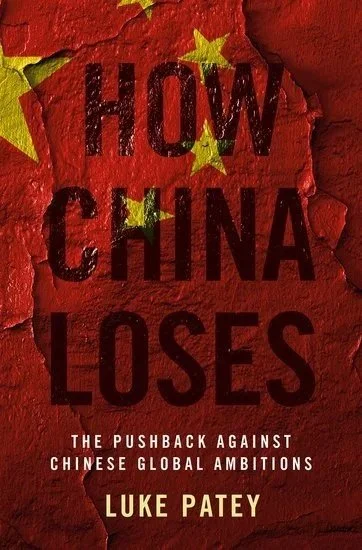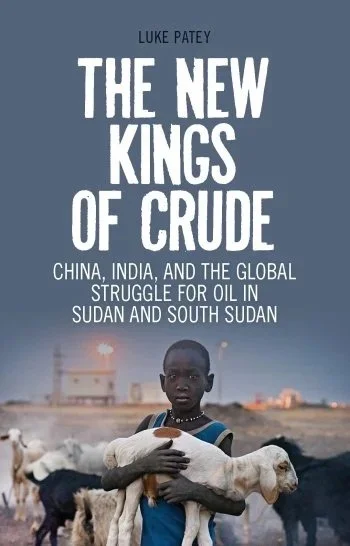“Timely and thought-provoking.”
Many fear that China’s economic clout, tech innovations, and military power will allow it to remake the world in its own authoritarian image. But despite all these strengths, a future with China in charge is far from certain. Rich and poor, big and small, countries around the world are recognizing that engaging China produces new strategic vulnerabilities to their independence and competitiveness.
How China Loses tells the story of China’s struggles to overcome new risks and endure the global backlash against its assertive reach. Combining on-the-ground reportage with incisive analysis, Luke Patey argues that China’s predatory economic agenda, headstrong diplomacy, and military expansion undermine its global ambitions to dominate the global economy and world affairs. In travels to Africa, Latin America, East Asia and Europe, his encounters with activists, business managers, diplomats, and thinkers reveal the challenges threatening to ground China’s rising power.
At a time when views are fixated on the strategic competition between China and the United States, Patey’s work shows how the rest of the world will shape the twenty-first century in pushing back against China’s overreach and domineering behavior.
“In this COVID-and-after era, there is a pressing need for informed correctives to the propaganda of Chinese triumphalism or the illusion that America can somehow lead the global order back to business as usual. Luke Patey’s How China Loses is the kind of intellectual medicine the world requires.”
“Timely and important, this is, in a way, a book about what not to do for a nation to manage its hard power in foreign affairs. ”
The need for oil in Asia’s new industrial powers, China and India, has grown dramatically. The New Kings of Crude takes the reader from the dusty streets of an African capital to Asia’s glistening corporate towers to provide a first look at how the world’s rising economies established new international oil empires in Sudan, amid one of Africa’s longest-running and deadliest civil wars. For over a decade, Sudan fuelled the international rise of Chinese and Indian national oil companies. But the political turmoil surrounding the historic division of Africa’s largest country, with the birth of South Sudan, challenged Asia’s oil giants to chart a new course.
Luke Patey weaves together the stories of hardened oilmen, powerful politicians, rebel fighters, and human rights activists to show how the lure of oil brought China and India into Sudan—only later to ensnare both in the messy politics of a divided country. His book also introduces the reader to the Chinese and Indian oilmen and politicians who were willing to become entangled in an African civil war in the pursuit of the world’s most coveted resource. It offers a portrait of the challenges China and India are increasingly facing as emerging powers in the world.
“To grasp the new world of oil, you must plumb China’s role in Africa. Only, no one has penetrated it — until Luke Patey in his very welcome new book.”
“Luke Patey’s remarkable book— an indispensable and comprehensive account of the encounter between big oil and Sudan — includes important new material on China’s strategy of internationalizing oil production and India’s seminal but under-recognized entry into the global oil business.”
“Luke Patey has written a thoroughly engaging book on the impact of Africa’s longest-running civil wars in Sudan on the global ambitions of Chinese and Indian national oil companies. He lucidly explores how this now divided country shaped and constrained the aspirations of these oil giants, and explains excellently the influence and limitations of Asia’s two powerful countries, particularly China, on their national oil companies.
”
“As Mr Patey writes, despite worsening returns and growing unease, Sudan remains the “largest overseas achievement” of the state-owned oil companies of both China and India. […] Patey’s book has pen-portraits of the individuals who spearheaded and maintained exploration programmes in Sudan, … the “new kings of crude” [who] may yet have a role in trying to quell the violence in the two Sudans.”

